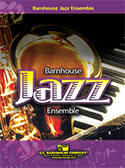WISDOM OF THE HAND
A Guide to the Jazz Pentatonic Scales
Marius Nordal
Cat #: SH-WH
Retail Price: $29.95
Our Price: $26.96
This item usually ships within 5 to 7 business days.
Questions?
Please call +1-518-587-1102 or email us.
Edition: Paperback Book, Piano
Description: 219 Pages
Publisher: Sher Music
Jazz pianists have been trained to use one-octave, "thumb-under" fingerings, based on the Western classical tradition. But this system falls short when dealing with the wider intervals of the pentatonic scales. So pianist, composer and educator Marius "Butch" Nordal has come up with a system of "positional playing" that will allow the pianists new vistas of freedom and ease of playing on these crucial elements of jazz.
219 pages, $30 for printed book, $22 for digital book
Wisdom of the Hand is a thorough exposition of a new way to approach playing piano:
- Has two-octave fingerings in all 12 keys for the four most commonly used versions of the pentatonic scale.
- Has two-octave fingerings for all 12 blues scales
- Introduces the concept of "piano drumming" to have the reader conceive music rhythmically instead of just as monotonous streams of pitches.
- Weans the student away from playing scale patterns by having the improviser conceive ideas in terms of the infinite variety of little 3 and 4 note chord shapes to be found in the pentatonic scales.
- Introduces the concept of positional playing to enable transcending the clumsy "thumb under" moves that plague keyboard players.
- Introduces the "88 Note Scale" concept have the player understand that each register of the keyboard speaks a different language. This breaks the habit of thinking of the piano as merely a single octave of twelve notes repeated across the keyboard.
- Provides 200 practice examples covering rhythm, bending notes, positional playing and creativity.
Endorsement
 This enlightening and entertaining book takes you deeper than most musicians even dream into the possibilities inherent in pentatonic scales. Marius Nordal explores the far reaches of what can be done with this very familiar concept. It is like learning a new dialect of a familiar language; a very fun adventure, sure to expand your musical horizons. The playing techniques presented are somewhat non traditional, but ultimately very rewarding. ”
This enlightening and entertaining book takes you deeper than most musicians even dream into the possibilities inherent in pentatonic scales. Marius Nordal explores the far reaches of what can be done with this very familiar concept. It is like learning a new dialect of a familiar language; a very fun adventure, sure to expand your musical horizons. The playing techniques presented are somewhat non traditional, but ultimately very rewarding. ”
— Larry Dunlap







